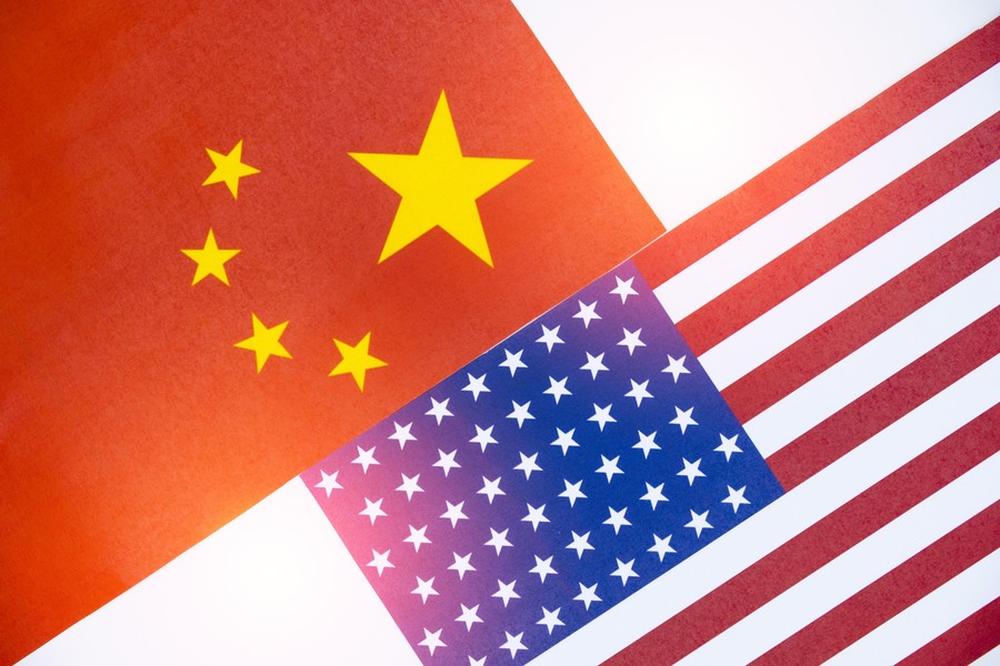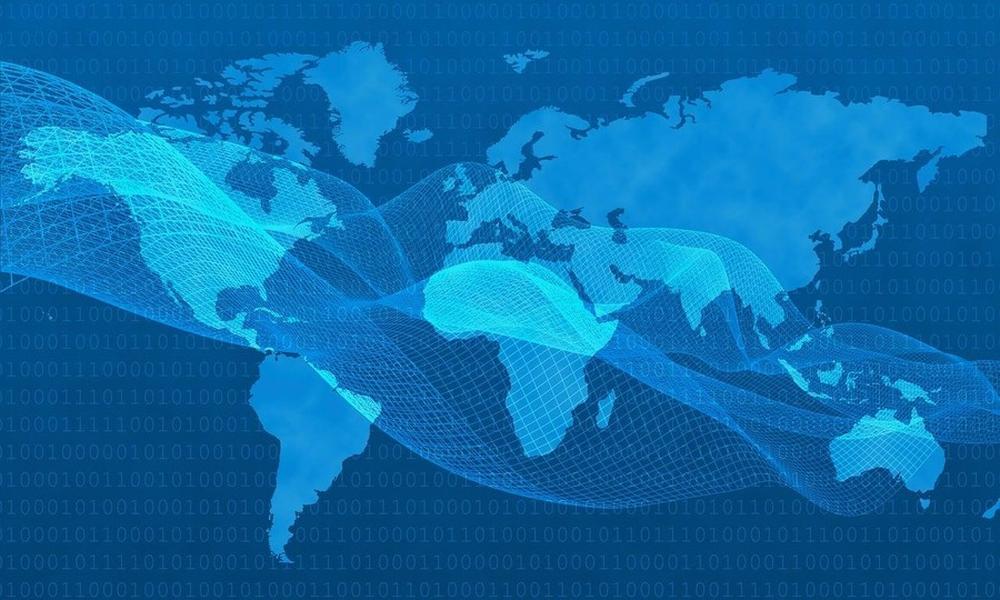- #China-US Competition
- #US Foreign Policy

► De-risking has recently emerged as a word to describe United States policy toward China. The term was first used by European Commission President Ursula von der Leyen on March 30 to describe the EU's China strategy and gained traction on April 27 when White House National Security Adviser Jake Sullivan also referred to the United States' China policy as "de-risking" rather than "decoupling".
► Some observers believe that the U.S. policy toward China is changing. There is even an overly optimistic view that the U.S.-China relationship is on the verge of a rapprochement. However, I do not believe that there is a shift in U.S. policy toward the PRC for the following five reasons.
► It is important to understand that it is not the word de-risking that matters, but the means by which countries have chosen to achieve it. While the goal of managing China risk is the same, the specific means are different, with the European focus on diversification and the U.S. on partial decoupling.
De-risking has recently emerged as a word to describe United States policy toward China. The term was first used by European Commission President Ursula von der Leyen on March 30 to describe the EU's China strategy and gained traction on April 27 when White House National Security Adviser Jake Sullivan also referred to the United States' China policy as "de-risking" rather than "decoupling".
Some observers believe that the U.S. policy toward China is changing. There is even an overly optimistic view that the U.S.-China relationship is on the verge of a rapprochement. However, I do not believe that there is a shift in U.S. policy toward the PRC for the following five reasons:
First, the U.S. has never officially endorsed the word “decoupling” in the context of its China policy. In the Trump administration's May 2020 “United States Strategic Approach to the People’s Republic of China” and the Biden administration's October 2022 “National Security Strategy,” the word decoupling was not mentioned once, meaning that the U.S. government's policy goal has always been to manage ‘China Risk’ rather than completely decouple from China. The recent emphasis on "de-risking" is not a change in language but rather a choice of words to best describe its existing China policy.
Second, if we define de-risking, we would say that it is the act of reducing the probability of exposure to risk., which is not a specific country's goal but a policy goal for all countries, including the United States and China. In this sense, we should pay more attention to the means to achieve “de-risking,” and there are a number of ways to accomplish this. Complete decoupling, partial decoupling, asymmetric decoupling, diversification, and reshoring are some of the most talked about. Of these, the U.S. has chosen partial decoupling to manage China risk by decoupling from China in limited and selective areas. This is best described by the phrase "small yard, high fence" that National Security Advisor Jake Sullivan always talks about in public.
Third, the U.S.-China high-level bilateral dialogues in 2023, including the State Secretary’s, Treasury Secretary’s, Commerce Secretary’s consecutive visits to China and the summit at APEC in November, should not be read as a shift in U.S. policy toward China. The United States has always emphasized communication with China. As Treasury Secretary Janet Yellen noted on April 20, 2023, there is a recognition that bilateral communication is essential to mitigate the risk of misunderstanding and unintended conflict. While mutual visits by the highest-ranking officials from both countries to each other have created a foundation for a more stable U.S.-China relationship, it does not suggest a fundamental resolution of the many issues that divide the two countries. As evidenced by the U.S.-China summit at APEC, the U.S. has no intention of yielding on export controls to China, and China shows no signs of backing down on the issue of Taiwan reunification.
Fourth, the win-win with China that the United States has been talking about lately is not based on unconditional cooperation but on a conditional win-win. The U.S. recognizes that a sustainable win-win is only possible if China engages in open, fair, and rules-based competition. Unless China fulfills its collective obligations to the world and reforms its unfair practices, reducing dependence on China and containing China will continue. On December 20, 2022, USTR Katherine Tai mentioned that “to vigorously defend our values and economic interests, we need a new playbook on China that serves our interests, and we will continue to press the PRC on its state-centered and non-market trade practices.” Right after his visit to China in June 2023, Secretary of State Antony Blinken said that “it’s very clear that when it comes to China, we are going to do and say things that they don’t like; they are going to do and say things that we don’t like.” President Biden has also demonstrated a recognition that China does not need to be demonized, but neither should it be sanitized with unconditional impunity.
Fifth, in recent months, U.S. export controls to the PRC have actually been strengthened. As Jake Sullivan mentioned at the Special Competitive Studies Project (SCSP) Global Emerging Technologies Summit in September 2022, the United States recognizes that it is a national security priority to widen the gap with China in certain technologies as much as possible. While the speech directly mentions computing-related technologies, biotechnology, and clean technology, to date, the U.S. has focused on China in computing-related technologies, including advanced semiconductors, AI, and quantum computing. On August 9, 2023, President Biden announced through an executive order that the United States would review U.S. entities’ direct investment in Chinese companies involved in advanced semiconductors, AI, and quantum computing, and on October 17, the Department of Commerce's BIS updated its export control regulations for semiconductor manufacturing equipment and AI, significantly strengthening its checks on China. In addition to its own efforts, the United States also strengthened its semiconductor export control cooperation with Japan and the Netherlands in 2023 and began discussing the need to establish a new multilateral export control regime that includes a range of emerging issues, including human rights.
In 2024, the U.S. hardline China policy will continue. Elections in key countries will also be a major variable affecting geopolitics and geoeconomic dynamics in 2024. Taiwan's presidential and parliamentary elections are scheduled for January 13, 2024, followed by the EU parliamentary elections in early June. Japan is also likely to hold elections next year, with the Kishida government's approval rating in the low 20s, and the U.S. presidential election on November 5. China policy is likely to be politicized during the election process as it is more likely to attract attention these days. Considering that the U.S.-China summit at APEC in November 2023 ran parallel to each other, reaffirming their positions rather than improving bilateral relations, it is expected that there will be no fundamental change in the West's hardline policy toward China in 2024, and geopolitical and geoeconomic fragmentation based on values and trust will accelerate.
It is important to understand that it is not the word de-risking that matters, but the means by which countries have chosen to achieve it. While the goal of managing China risk is the same, the specific means are different, with the European focus on diversification and the U.S. on partial decoupling. It is important to note that Jake Sullivan continues to refer to a "small yard high fence" strategy. We should not misjudge U.S. intentions.
Wonho Yeon is a Research Fellow and Head of the Economic Security Team at the Korea Institute for International Economic Policy (KIEP). His research interests include U.S.-China trade conflict, U.S.-China technological rivalry, and economic security. His recent publications include: “How to Enhance the U.S.-ROK Alliance through Economic Security Policy” (NBR 2023) and “U.S.-China Strategic Competition and Economic Security Strategy of Korea” (Wilson Center 2022). Currently, He is a member of the policy advisory committees for the National Security Office (Office of the President) and the Ministry of Foreign Affairs.

